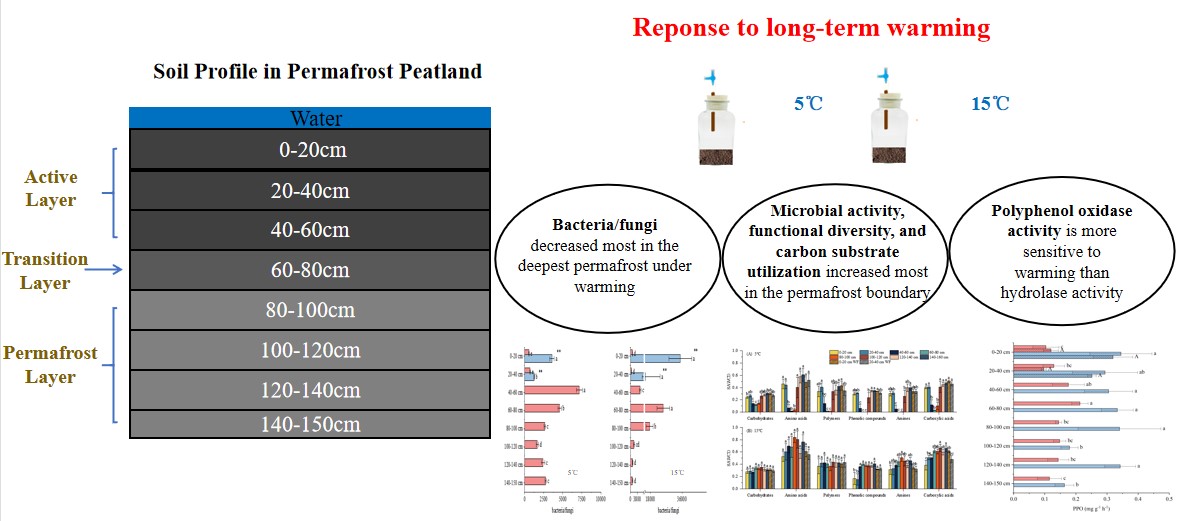Soil microbes and enzymes mediate soil carbon–climate feedback, and their responses to increasing temperature affect soil carbon stability subjected to the effects of climate change.
Recently, Prof. SONG Yanyu et al. from the Northeast Institute of Geography and Agroecology of the Chinese Academy of Sciences investigated the effect of long-term warming on soil microbes and enzymes involved in carbon cycling along permafrost peatland profile (0-150 cm) and investigated their response to water flooding in the active soil layer through a 50-month incubation experiment.
This work was published in the journal of Science of the total Environment on July 23.
Researchers found bacterial and fungal abundance decreased in the active layer soil but increased in the deepest permafrost layer under long-term warming incubation. Warming increased microbial catabolic activity, carbon utilization of carboxylic acids and amino acids, and polyphenol oxide activity throughout the permafrost profile. Warming stimulated the activity of hydrolyzed enzymes in the active soil layer and carbon fixing enzyme in the active and permafrost layers. In the deepest permafrost, the stimulation effect of warming on fungi which is more efficient in decomposing compounds with high molecular weights, was higher than that on bacteria, indicating that recalcitrant carbon is more sensitive to warming than labile carbon in deep permafrost.
Polyphenol oxide activity had a significantly higher Q10 value than hydrolyzed enzyme activity, implying that soil recalcitrant carbon was at high risk of loss under long-term warming. Water flooding significantly decreased the Q10 of β-glucosidase and acid phosphatase in active soil layer, implying that water flooding alleviates the effects of soil warming on these enzymes. Change of soil microbial activity under warming is coregulated by bacteria/fungi and hydrolytic enzyme activity.
These findings provide valuable insights into the linkage response of soil microorganisms, enzymes to climate change and their feedback to permafrost carbon loss.

Contact:
SONG Yanyu
Northeast Institute of Geography and Agroecology, Chinese Academy of Sciences
E-mail: songyanyu@iga.ac.cn
Attachment:
Responses of soil microbes and enzymes to long-term warming incubation in different depths of permafrost peatland soil
https://doi.org/10.1016/j.scitotenv.2023.165733